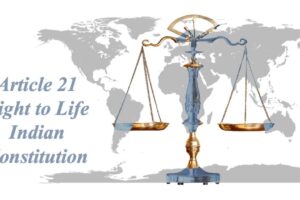
JUDICIARY: THE FOUNDATIONAL PIER OF DEMOCRACY
Introduction
One of the three foundations of Indian democracy is the Judiciary. The legislative branch and the executive branch are the other two pillars. The Indian constitutional system is ultimately adjudicated by the Judiciary. It serves as the pier of fundamental rights and the keeper of the state’s established fundamental norms. The demand for a democratic form of administration has grown significantly since the French Revolution. Democracy has been established in many states through independence movements.
Upholding Democracy: Functions of the “JUDICIARY”
India is considered to be one of the biggest democracies in the world, and an effective democracy demands an independent judiciary that can operate efficiently. An independent judiciary guarantees that justice is administered with fairness as a defense against potential breaches of the Rule of Law.
As taught by various institutes constituted for providing RJS Coaching, democracy is a government “of the people, by the people, and for the people.” In order to preserve a democratic country from autocracy while establishing the rule of law, the function of the judiciary becomes essential. It inhibits the current administration’s unlawful operations.
Significance of the Judiciary
For a number of reasons, the significance of an impartial judiciary is emphasized. They are:
- It provides a system of checks and balances by acting as the first line of defense against any disproportionate or unauthorized power held by the legislative or executive branches.
- Any statute that violates the basic fundamentals of the Constitution of India is examined by the judiciary, and if necessary, it is declared null & void. This avoids any power concentration.
- In a varied and diverse country like India, a neutral judicial system is crucial for protecting the rights of minorities and other marginalized sections in society where the Rule of Law must be upheld by a strong, independent judiciary.
- It guarantees that everyone, regardless of position or power, is subject to a uniform set of laws.
Empowerment of “DEMOCRACY”: Landmark Rulings by the Judiciary
The Judiciary of India has established significant rulings that are highlighted by every RJS Coaching institute in India in the way of empowering democracy. Some major rulings are as follows:
- In the case of Keshavananda Bharati v State of Kerala,the Court determined that while Parliament has the power to amend the Constitution as a whole, it cannot make changes to its basic structure. This landmark judgment defined the fundamental ideas that form the basis of Indian constitutionalism. This significant judgment was an important turning point in the history of the Constitution of India when the Supreme Court developed the ” Doctrine of the basic structure.”
- In the case of Maneka Gandhi v Union of India, the Court widened the meaning of personal liberty by emphasizing that any law depriving an individual of their life or personal liberty has to be equitable, fair, and reasonable. To ensure that all procedures established by law must be fair and just, it established the concept of “procedure established by the law” under the virtue of Article 21 of the Constitution.
- In the case of Vishakha v State of Rajasthan,in response to this prominent case of workplace sexual harassment, the court issued certain important guidelines (popularly referred to as the Vishaka guidelines) that have been established to deal with and prevent it. The Court’s decision addressed a legal vacuum and paved the way for legislation that would tackle harassment in the workplace.
- In the case of Navtej Singh Johar v Union of India, the Supreme Court found that consensual sex between adults violated people’s right to privacy. One’s right to life would be violated if their sexual orientation were denied because it is an embedded aspect of who they are. Resulting in the decriminalization of Section 377 of the Indian Penal Code.
Emergence of “Public Interest Litigation”: Indian Judiciary
- Among the first justices in the nation to accept PILs were Justices Bhagwati and V. R. Krishna Iyer.
- In the well-known case of “Hussainara Khatoon”often highlighted for the students taking classes for RJS Coaching, Kapila Hingorani petitioned in 1979 and won the release of around 40.000 undertrial prisoners from Patna jails.
- This matter was brought before a Supreme Court bench presided by Justice P N Bhagwati. Because of this case, Hingorani is known as the “Mother of PILs.” The court granted Hingorani authorization to continue a case though she lacked personal standing, making PILs an indispensable part of Indian juridical theory.
- Justice Bhagwati worked hard to guarantee that the idea of PILs could be expressed adequately. He did not demand that procedures be followed and even considered ordinary letters from people who cared about the public writ petitions.
Conclusion
The judiciary is an essential part of Indian democracy and performs a multitude of functions other than just interpreting the law. It serves as the cornerstone of justice, preserving freedoms for individuals, upholding accountability, and bolstering the Rule of Law. But there are still challenges, such as the need for enhanced transparency and the backlog of cases. A vibrant democracy like India’s has to continually enhance its legal framework, encouraging transparency, and strengthening the frameworks that promote equal justice for all. Through such endeavors, the Court will keep evolving as a pier of democracy, ushering India toward an ideal future of equal opportunity, justice, and the safeguarding of the principles of democracy.



